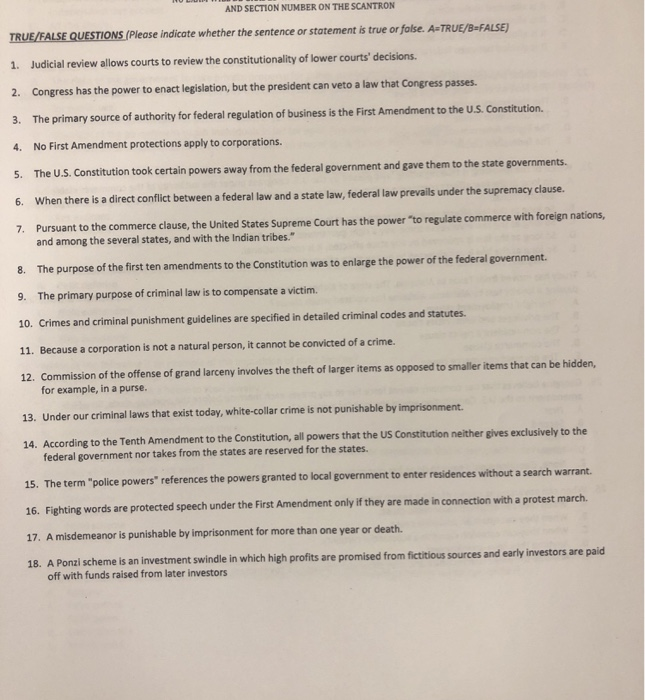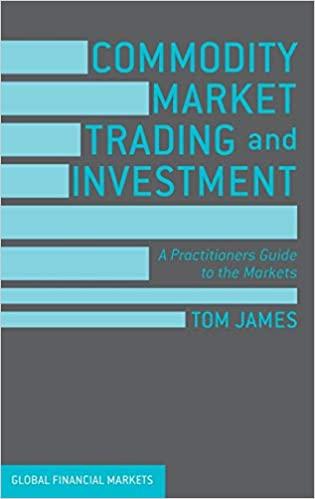AND SECTION NUMBER ON THE SCANTRON TRUE/FALSE QUESTIONS (Please indicate whether the sentence or statement is true or false. A=TRUE/B=FALSE) 1. Judicial review allows courts to review the constitutionality of lower courts' decisions. 2. Congress has the power to enact legislation, but the president can veto a law that Congress passes. 3. The primary source of authority for federal regulation of business is the First Amendment to the U.S. Constitution. 4. No First Amendment protections apply to corporations. 5. The U.S. Constitution took certain powers away from the federal government and gave them to the state governments. 6. When there is a direct conflict between a federal law and a state law, federal law prevails under the supremacy clause. 7. Pursuant to the commerce clause, the United States Supreme Court has the power to regulate commerce with foreign nations, and among the several states, and with the Indian tribes." 8. The purpose of the first ten amendments to the Constitution was to enlarge the power of the federal government. 9. The primary purpose of criminal law is to compensate a victim. 10. Crimes and criminal punishment guidelines are specified in detailed criminal codes and statutes. 11. Because a corporation is not a natural person, it cannot be convicted of a crime. 12. Commission of the offense of grand larceny involves the theft of larger items as opposed to smaller items that can be hidden, for example, in a purse. 13. Under our criminal laws that exist today, white-collar crime is not punishable by imprisonment. 14. According to the Tenth Amendment to the Constitution, all powers that the US Constitution neither gives exclusively to the federal government nor takes from the states are reserved for the states. 15. The term "police powers" references the powers granted to local government to enter residences without a search warrant. 16. Fighting words are protected speech under the First Amendment only if they are made in connection with a protest march. 17. A misdemeanor is punishable by imprisonment for more than one year or death. 18. A Ponzi scheme is an investment swindle in which high profits are promised from fictitious sources and early investors are paid off with funds raised from later investors







